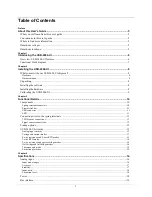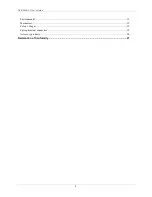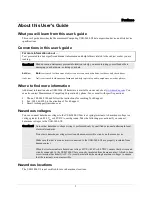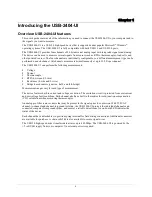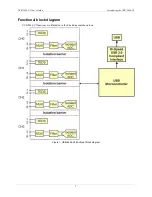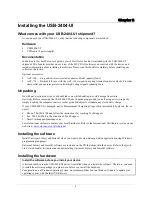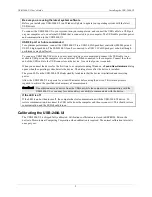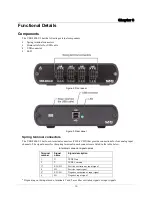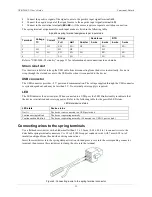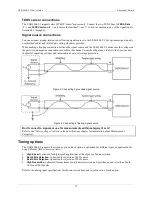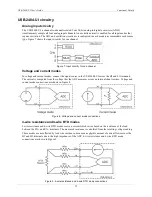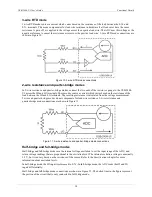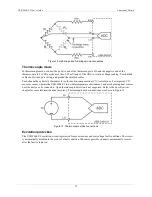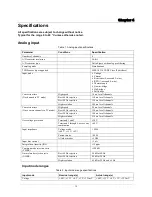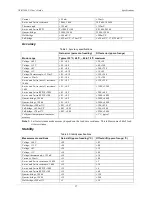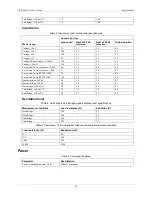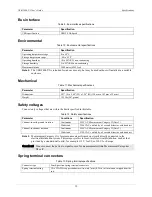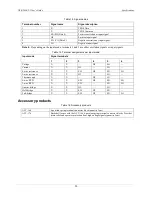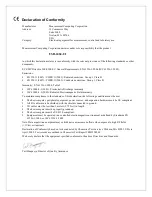
6
Chapter 1
Introducing the USB-2404-UI
Overview: USB-2404-UI features
This user's guide contains all of the information you need to connect the USB-2404-UI to your computer and to
the signals you want to measure.
The USB-2404-UI is a USB 2.0 high-speed device that is supported under popular Microsoft
®
Windows
®
operating systems. The USB-2404-UI is fully compatible with both USB 1.1 and USB 2.0 ports.
The USB-2404-UI provides four channels of 24-bit universal analog input with integrated signal conditioning.
The device can be used to measure several signals from sensors such as RTDs, thermocouples, load cells, and
other powered sensors. The four channels are individually configurable, so a different measurement type can be
performed on each channel. All channels are measured simultaneously at up to 100 S/s per channel.
The USB-2404-UI can perform the following measurements:
Voltage
Current
Thermocouple
RTD (4-wire and 3-wire)
Resistance (4-wire and 2-wire)
Bridge-based sensors (quarter-, half-, and full-bridge)
Measurement ranges vary for each type of measurement.
The device features built-in current and voltage excitation. The excitation circuit is protected from overcurrent
and overvoltage fault conditions. Each channel also has a built-in thermistor for cold-junction compensation
(CJC) calculations when measuring thermocouples.
An analog pre-filter removes noise that may be present in the signals prior to conversion. With 250 VAC
channel-to-channel and channel-to-ground isolation, the USB-2404-UI protects the individual channels and
connected computer from ground spikes, and ensures a reliable data stream. An on-board LED indicates the
status of the device.
Each channel has a detachable six-position spring terminal for field wiring connections. Additional connectors
are available for purchase. A strain relief kit is also available to secure signal wires.
The USB 2.0 high-speed driver transfers data at rates up to 480 Mbps. The USB-2404-UI is powered by the
+5 volt USB supply from your computer. No external power is required.
Distributed by MicroDAQ.com, Ltd. www.MicroDAQ.com (603) 746-5524



